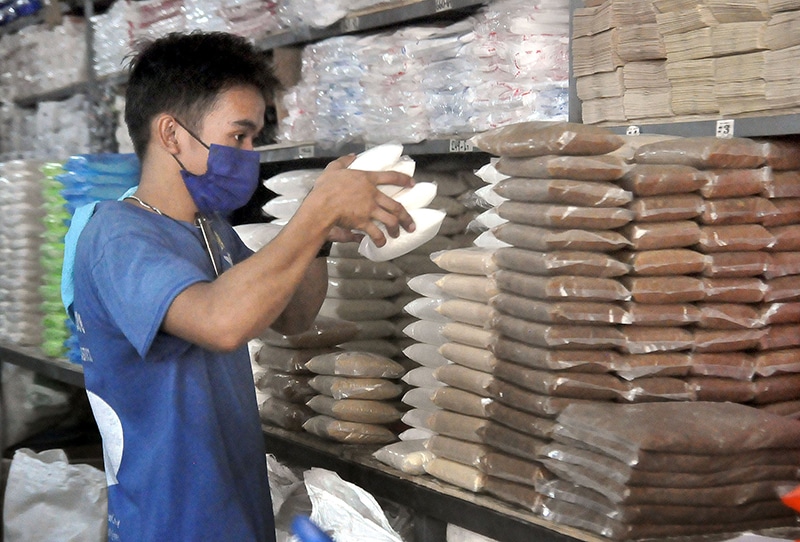BBM sets move this weekend, Congress tables import mess inquiry
A shakeup at the Sugar Regulatory Administration (SRA) is imminent, after the agency approved the importation of 300,000 metric tons of sugar without the consent of President Ferdinand Marcos Jr., in a move the Palace called “illegal.”
Marcos told reporters Wednesday the reorganization would be done by the end of the week, following the resignation of two of its board members and Agriculture Undersecretary Leocadio Sebastian, who signed Sugar Order No. 4.
His announcement comes as the Senate and the House of Representatives moved to open investigations into the aborted importation of sugar.
The President said after the shakeup, he would focus on addressing the shortage of sugar that is affecting industrial consumers of the commodity, and leave the investigations to Congress.
Press Secretary Trixie Cruz-Angeles, however, said the Palace probe into the unauthorized signing of the resolution will still continue despite the President’s pronouncement.
Last week, Sebastian resigned after signing the SRA order on behalf of the President.
Another signatory of the resolution, SRA board member Roland Beltran, also stepped down on Sunday.
On Tuesday, SRA administrator Hermenegildo Serafica also resigned, which leaves Negrense sugar leader Aurelio Gerardo Valderrama Jr. as the only remaining SRA board member.
Marcos said he is in talks with sugar traders to impose a suggested retail price (SRP) of P70 per kilogram of sugar as several stores in Metro Manila have increased prices to as high as P100 per kilogram.
“They first offered at P80 so I said, ‘Can I ask for P70?’ Just help the people since they’re struggling and we’re getting there,” he said in a mix of English and Filipino.
He hoped that he could arrive at a good agreement with traders.
On Monday, Marcos met with officials of the Philippine Chamber of Food Manufacturers Inc. (PCFMI) to arrive at a concession with traders to tame sugar prices.
Marcos said there was a need to import sugar to prevent a domestic shortage. Earlier, he said the government may need to import 150,000 MT of sugar if the supply is depleted by October.
“We will import. Unfortunately, it’s the same situation in all the agricultural commodities in the Philippines. We don’t want to import as much as possible but the problem is that our production is not enough. Sometimes the price is also very high,” he said.
The Senate Ribbon Committee said Wednesday it will begin hearings on the sugar importation fiasco next week starting Tuesday.
It would also begin hearings on the delivery of “pricey and outdated laptops” intended for use by public school teachers during the COVID-19 pandemic, the panel chairman, Senator Francis Tolentino, said.
In his resolution, Senate President Juan Miguel Zubiri called for a Blue Ribbon investigation into the unauthorized issuance of Sugar Order No. 4 to import 300,000 MT of sugar.
“At the very least, there’s usurpation of authority. At the very least, there’s a violation of the Anti-graft and Corrupt Practices Act,” Zubiri said.
The Senate leader emphasized that about 6million Filipinos—from sugar farmers to laborers to dependents—are reliant on the industry.
In the House, Minority Leader and 4Ps part-list Rep. Marcelino Libanan sought a congressional inquiry into Sugar Order No. 4.
Libanan filed House Resolution 259 urging the House committees on good government and on agriculture and food to conduct look into the order.
“There is a need to conduct an in-depth investigation on this botched attempt to import sugar to identify all the persons who connived with Undersecretary Sebastian for this unauthorized sugar importation order and for them to answer possible criminal charges,” Libanan said in the resolution.
He said the congressional inquiry in aid of legislation is also intended for the government to formulate a clear-cut policy on importation not just for sugar but for all agricultural products to avoid the unnecessary burden and prejudice to small Filipino farmers and producers.





